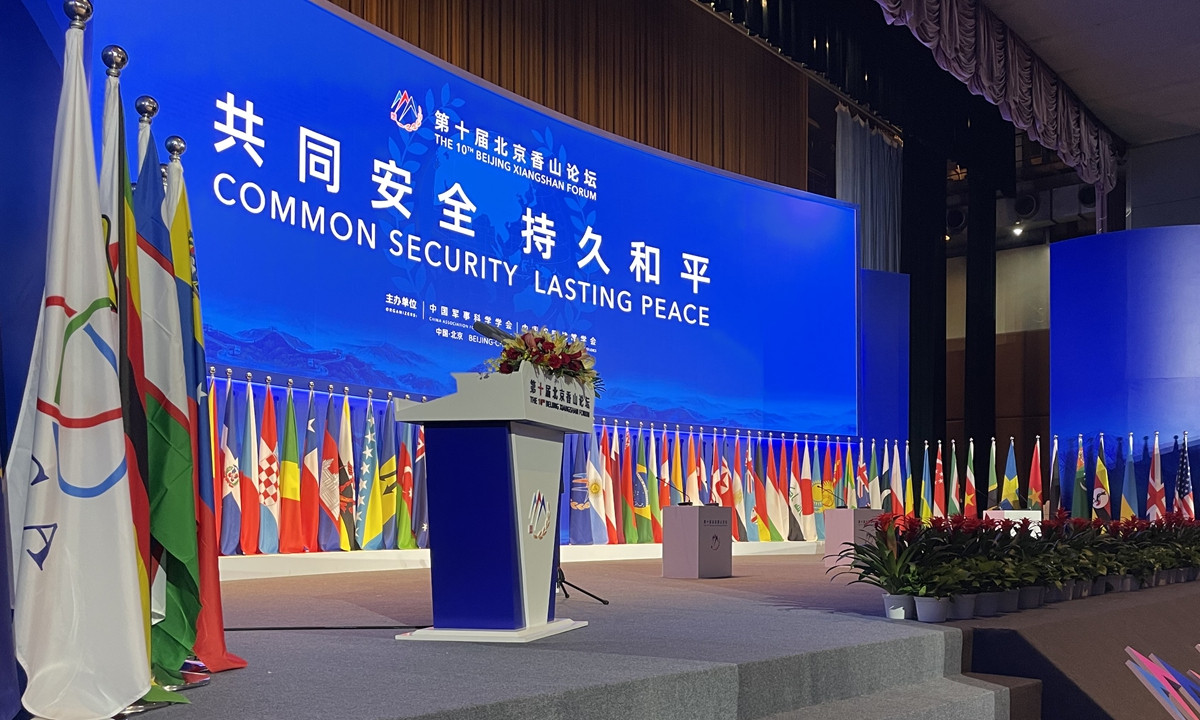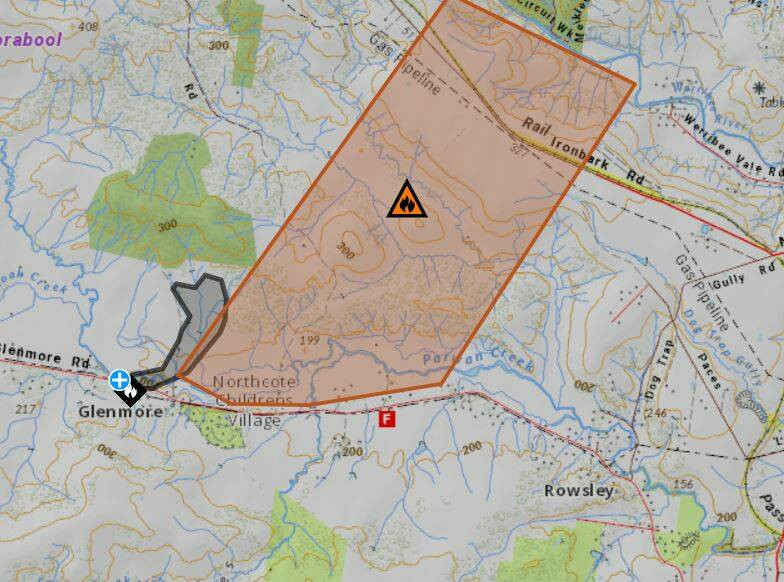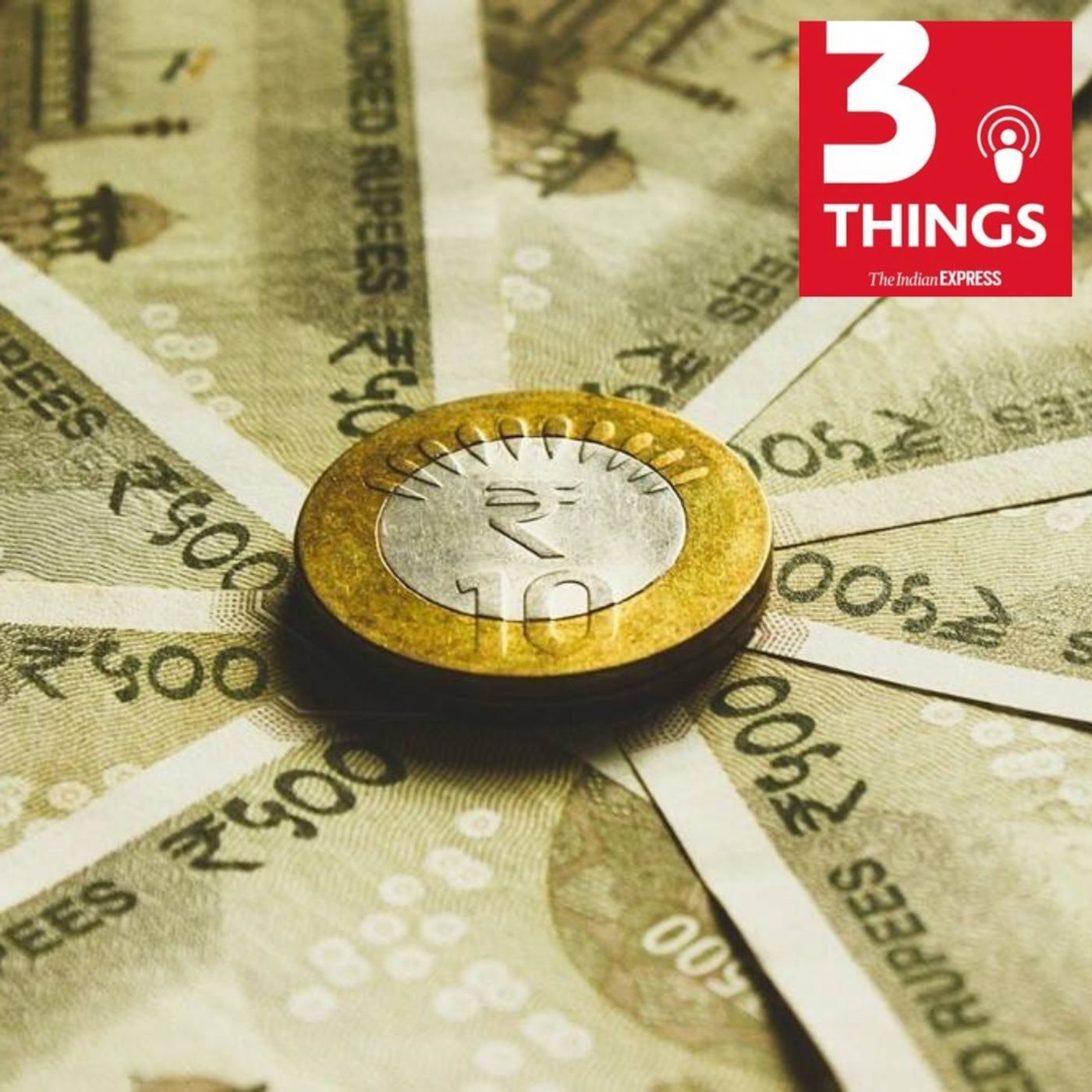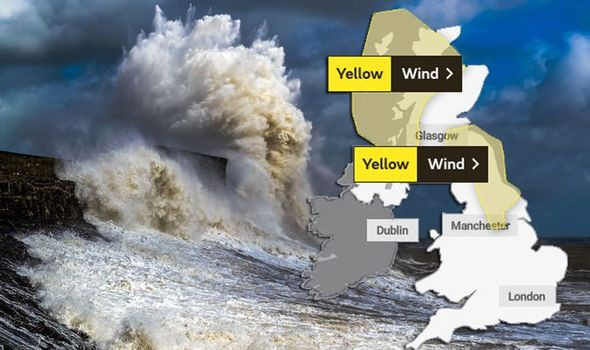While most of China was getting ready last weekend for the three-day Mid-Autumn Festival holiday, Beijing’s International Convention Centre was thronged and bristling with gold braid, medals and epaulettes. Of the 1,800 or so delegates at the Beijing Xiangshan Forum, China’s annual military diplomacy conference, about half were in uniform, most of them senior officers from over 100 countries.
Other major themes included security in the Asia-Pacific, particularly in the South China Sea, the US-China relationship and the future of arms control. And there were sessions on the use of artificial intelligence (AI) in warfare and the security governance of outer space.
Many of the most interesting encounters at the forum were not in the main sessions or in seminar rooms but queuing for coffee during the breaks. In front of you might be an expert on nuclear weapons systems while a senior military figure from Belarus stood behind you.
One afternoon I sat around a table with a Pakistani general, a US army officer, a former Afghan negotiator with the Taliban, a German expert on AI weapons and a Mongolian political scientist. Earlier that day a man I met over coffee told me about his more than 50 visits to North Korea.
Some of the panels brought together the most unlikely interlocutors, notably a session on European security that featured Ukraine’s former foreign minister Oleksandr Chalyi and Sergey Karaganov, a Russian political scientist who has called for Moscow to consider launching a nuclear strike against a Nato member state. A session on the Middle East included speakers from Israel and Iran, although they were not on the platform at the same time.
Beijing has been Moscow’s most important friend, economically and diplomatically, since Vladimir Putin fully invaded Ukraine in February 2022. But China is also Ukraine’s biggest export destination and relations have improved in recent weeks to the point where Volodymyr Zelenskiy could soon visit Beijing.
Nobody at the forum was predicting an early peace settlement but both Russians and Ukrainians said a pause in the fighting could be negotiated. Since Ukraine’s incursion into Russian territory in Kursk, Russian forces have made territorial gains in eastern Ukraine. Some experts in Beijing last weekend suggested that these Russian gains could offer Putin an opportunity to pause the fighting on the basis that his forces have secured most of the territory of the four Ukrainian provinces he has declared to be part of Russia. Neither Kyiv nor almost anyone else will recognise Russia’s claims, which have made a peace agreement harder to achieve than it was in Istanbul in the spring of 2022.
Even a pause in fighting would require external security assurances, most plausibly from the US and China. This could move Beijing out of its diplomatic comfort zone but it could help to repair other relationships, notably in Europe.
The US delegation at the forum was led by Michael Chase, deputy assistant secretary of defence for China, Taiwan and Mongolia. And although he kept a low profile and avoided reporters he discussed a range of issues with Chinese military leaders, including security in the Asia-Pacific and how to manage the US-China relationship.
Direct contacts between the US and Chinese militaries resumed only a few months ago after a two-year silence caused by diplomatic tensions over everything from Nancy Pelosi’s visit to Taiwan in 2022 to the shooting down over the US of a Chinese surveillance balloon. Wu Xinbo, an expert on the US at Fudan University in Shanghai, told the forum that Washington and Beijing should create a joint committee of academics, experts and former officials to establish a complementary framework to the military-to-military dialogue.
Coming a few days after Xi Jinping welcomed 53 African leaders to Beijing for the Forum on China-Africa Cooperation, the Xiangshan Forum also highlighted the country’s relationships across the Global South. Although China’s investment in Africa has a mixed legacy, Chinese experts, policymakers and investors speak about Africa in a way that is increasingly uncommon in Europe or the US.
While the EU negotiates deals to prevent Africans from crossing the Mediterranean, by incarcerating them if necessary, China sees the continent above all as one of opportunity. During a private session on the margins of the conference one Chinese businessman pointed out that Africa had a population of 1.5 billion, compared to China’s 1.4 billion.
He suggested that massive investment in infrastructure through long term, low interest loans could help the continent to build the basis for an economic transformation similar to China’s over the past 40 years. “They’ll have a population of two billion by the middle of this century and Africa, not Asia, will become the economic powerhouse of the world,” he said.
China's Soft Power Struggle in the Spotlight
Lackluster Reception
What could be the reasons behind major media houses literally ignoring a major annual event, such as the Xiangshan Forum? Beijing organises this forum apparently to compete with the famous Shangri-La Dialogue, an annual defence meeting attended by defence ministers and academics, among others, held in Singapore and organised by the London-based International Institute of Strategic Studies (IISS). It is partly an effort by Beijing to promote the Chinese version of world affairs.
It is noteworthy that IISS is a think tank and China is a country. The kind of coverage the Shangri-La Dialogue gets in the international media and the indirect influence this annual event has in agenda setting are surely China’s envy. When the Chinese military muscle flexing, aggressive behaviour, and assertive moves to claim Chinese sovereignty over disputed regions in the oceans and on land came for severe criticism in Shangri-La meets, the Chinese government decided to run a parallel event on defence and security issues in Beijing. Four years after the Shangri-La Dialogue commenced in 2002, the Xiangshan Forum was first organised.
In the 2024 Xiangshan Forum, the US Defence Secretary did not attend, and Washington sent a lower-level officer to represent the US. The Indian defence minister did not respond to the invitation from Beijing. This forum was organised after a few months of Shangri-La Dialogue and failed to generate any enthusiasm among the defence and foreign policy analysts and academics.
Normally, the Xiangshan Forum, organised during a difficult international security scenario, should have drawn widespread interest. The ongoing wars in Europe and West Asia that have impacted food security, supply chain, and trade disruptions and created energy insecurity perhaps were responsible for the lacklustre outcome of the Xiangshan Forum.
China and Russia hit out against the West during the Forum and it was not new. Chinese President Xi Jinping sent a message that was very general in nature and idealistic in content, and the Chinese Defence Minister made a speech that hardly contained any new initiative or peace proposal. About 1,800 participants from 100 countries were present in the forum to hold discussions and dialogues, but none could or expected to say things that would be considered critical of China, especially its threatening military activities in the Taiwan Strait and unlawful claims of sovereignty over the islands and waters of the South China Sea.
China was expected to project itself as a global player to promote peace and resolve conflicts, and the Chinese Defence Minister did that. China sought to champion the cause of the developing world and called for unity among them, nudging them to have robust defence ties with China. It sought to project itself as a leader of the Global South in not-so-hidden competition with India that has emerged as the ‘Voice of the Global South’.
Global Security Initiative: More Talk Than Action?
Navigating the South China Sea: A Test of China's Intentions
The 11th edition of the Xiangshan Forum was held in Beijing from 12th -14th September 2024 and was themed ‘Promoting Peace for a Shared Future.’ This year witnessed an increased number of participants compared to the previous editions of the Xiangshan Forums. With about 90 countries participating in this year’s edition, the 11th Xiangshan Forum has held discussions in four plenary and eight simultaneous special sessions on topicals on “Global South, international security, improving international security mechanisms, maintaining peace and development in the Asia-Pacific region, and achieving a balanced and orderly multipolar world.” The four plenary sessions comprised various speakers, but this article focuses on analyzing the speeches of Southeast Asia politico-military leaders. In the first plenary session titled ‘Security Cooperation and Asia-Pacific Prosperity and Stability,’ three Southeast Asia politico-military leaders consisting of Gen. Phan Van Giang – Minister of National Defense of Vietnam, H.E. Ng Eng Hen – Minister for Defense of Singapore, and H.E. Adly Bin Zahari -Deputy Minister of Defense of Malaysia. In the second plenary, Gen. Tea Seiha – Deputy Prime Minister and Minister of National Defense, Cambodia spoke about ‘Multipolarity and the Evolving International Order.’ In the third plenary, Gen. Chansamone Chanyalath – Deputy Prime Minister and Minister of National Defense, Laos spoke about ‘Global South and World Peaceful Development.’ In the fourth plenary, Amb. I Gusti Agung Wesaka Puja – Executive Director, ASEAN Institute for Peace and Reconciliation and was Permanent Representative of Indonesia to the United Nations, spoke on ‘International Mechanisms and Global Security Governance.’ The plenary has other speakers representing from Politico-Bureaucratic and also from academia. Here, the focus is to understand the stance of Southeast Asian States articulating their interest in the recently concluded 11th Xiangshan Forum, especially since these nations share disputes with China over the South China Sea.
The interviews and plenary speeches delivered by the politico-military officials of Southeast Asian countries voiced a resolution to the South China Sea conflict. Amb. I. Puja of Indonesia said, “It takes time to build trust and confidence”, though dialogue is the key to resolving a conflict. He also emphasized the South China Sea conflict settlement, owing to a lot of positivity in the ASEAN-China mechanism. Deputy Minister of Defense of Malaysia – Adly Zahari, on completion of his speech in the plenary during the question session when asked about Malaysia’s stand on the South China Sea, was vocal in highlighting the priority on freedom of navigation in the contested seas being a “peaceful zone for economic and trade purposes.”
In his plenary address, Singapore’s Defense Minister, Dr Ng Eng Hen, pointed at China’s focus on resolving conflicts in his backyard – the South China Sea. China’s proactive role was “to restore diplomatic relations between Saudi Arabia and Iran.” He called for China to reciprocate the same interest shown in another regional conflict towards solving the South China Sea conflict. During his plenary address, Cambodian Deputy Prime Minister Gen. Tea Seiha mentioned every aspect of traditional and non-traditional security issues. Still, his speech did not include the long-standing South China Sea conflict. South China Sea is considered the prime issue involving ASEAN’s mediation with China. Cambodia’s careful omission of the South China Sea conflict in its plenary address at the 11th Xiangshan Forum moots the dilemma within ASEAN.
11th Xiangshan Forum attendant has few claimant states in the South China Sea conflict, such as Vietnam, the Philippines, and Brunei; except Malaysia. The forum saw a discussion on the most topical security issues faced by Global South. The South China Sea is a security issue in the Global South, so careful omission of the conflict in the 11th Xiangshan Forum propounds a query: Does China post an assertive posture to its conflict? Even the Indonesia delegate Amb. China’s media houses questioned I Gusti Agung Wesaka Puja about the Philippines’ recent activity at Xianbin Jiao.
The Road to Confidence: From DOC to COC
The Declaration on the Conduct of Parties (DOC) in the South China Sea, signed by ASEAN and China, is a non-binding force and has some features detrimental to the ASEAN method of conflict mediation. DOC is supposed to bring China as a follower of the Treaty of Amity and Cooperation 1976. DOC explicitly states that China shall not use force in the conflict. China violated this ‘no-force’ provision by deploying the PRC in the disputed South China Sea to block the right to free passage as given for ships in the High Sea by UNCLOS. DOC conceded to China by entirely diluting the sacrosanct Treaty of Amity and Cooperation 1976 that disputes should be resolved through friendly consultations and negotiations by the states directly concerned. DOC’s concession could be a success for China’s assertive diplomacy in dealing with disputes bilaterally. The repeated China provocation at South China Sea proximity to the Philippines has led to a point where the Philippines stepped out of ASEAN’s mediation with the Permanent Court of Arbitration in 2013. Other ASEAN countries, though, have not supported this move, which has yet been seen as a success in China’s diplomacy against the Philippines. Even Singapore’s calling for China to resolve this conflict in the 11th Xiangshan Forum did not take sides between the Philippines and China in 2012.
Twenty years since the DOC was signed to arrive at the Code of Conduct in the South China Sea. Code of Conduct (COC) should have two components – “peaceful resolution of territorial disputes and self-restraint” and “confidence building through mutual exchange of military personnel and cooperation in environmental research.” China has shown keen interest in the latter in COC discussions since the inception of talks in 2018. China’s priority is confidence-building measures, but the lack of emphasis on conflict resolution is the deadlock hindering COC discussions. DOC has already placed disputes on the South China Sea that China would deal with bilaterally, which seems to be a card that derails the efforts toward COC.
ASEAN's Dilemma: Balancing Trade and Security
ASEAN has previously resolved conflicts in Southeast Asia. This conflict is time-testing the ASEAN as an organization. Even in this course, ASEAN-led mediation has peacefully resolved maritime claims between Indonesia and the Philippines. ASEAN has hesitated to deal with China in the South China Sea because most ASEAN nations have good trade relations and economic cooperation with China. Good trade and economic cooperation were believed to increase political cooperation.
China's Global Ambitions: A Balancing Act
There is no doubt that China aspires to become a world leader, a hegemon in the Indo-Pacific, and a competitor to the United States to get recognition as a superpower. China has staged a miracle in economic growth; it is well advanced in the technology sector; it is the principal trade partner of myriad countries, and its gray zone naval activities in the South and East China Seas continue with little practical counter from major powers. Yet, China has failed in acquiring enough soft power to befriend the world, project itself as a peaceful country, and make itself trustworthy as a reliable actor that can contribute to international peace.
The author is founder chairperson, Kalinga Institute of Indo-Pacific Studies, and formerly professor at JNU. Views expressed in the above piece are personal and solely those of the author. They do not necessarily reflect Firstpost’s views.
The 2024 Xiangshan Forum, while showcasing China's growing influence in global security, has also highlighted its ongoing challenges in building trust and projecting a peaceful image on the world stage. As China continues to assert its role in the world, its actions in the South China Sea and beyond will be closely scrutinized. The success of its Global Security Initiative and other initiatives will depend on its ability to walk the talk and demonstrate genuine commitment to peace and cooperation.

















